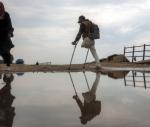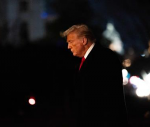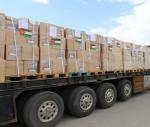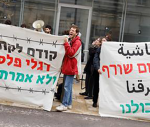You are here
Important to implement joint Orthodox council
Nov 08,2017 - Last updated at Nov 08,2017
The Orthodox Church in Jerusalem is going through some of its most difficult times due to continuous attacks against its leadership for squandering church property that is often ending up in the hands of the most radical settlement groups and Israeli investors.
The church, headed by Greek Patriarch Theophilus III, denies the allegations and states that land deals that have been made public are forgeries.
To prove its case, the church leadership and its supporters publicised recently its appeal to the Israeli high court contesting the claim of Aterat Cohanim, one of the most radical Jewish settler groups, to have legally bought church properties strategically located just inside Jaffa Gate, the most used to reach the Jewish quarter and the Western wall.
The general public, and especially members of the tiny Arab Orthodox faith, are angry with the patriarch for selling church property to pay off church debt.
Jordanian and Palestinian officials seem to draw a line between selling property in occupied East Jerusalem and selling church property in Israeli West Jerusalem.
The Israeli press has published numerous stories of church properties in West Jerusalem being sold to shady international companies that, in turn, pass them on to Israeli businesspeople.
The church used to lease its property for 49 or 99 years, but is now in the process of selling these lands.
Church officials say they are doing that for fear that Israel might pass a law taking over these properties as public land.
Land belonging to the church is located in ritzy Katamoun neighbourhood, on King George Street and other downtown West Jerusalem locations.
Important Israeli institutions, such as the Israeli Knesset, are built on the church land.
The Israeli media reported that some 1,500 Israeli owners of properties in Jerusalem’s wealthiest neighbourhoods discovered that the land on their homes sit on was sold, in secret, to private real estate companies. Accordingly, they fear that when their leases end — some of them as soon as in 18 years’ time — they will face the choice of either paying high sums to renew their leaseholds or sell and move.
A Knesset bill has been initiated by Rachel Azaria (from Kulanu party) to transfer church property to the state, in return for compensation.
This worry of some sort of property nationalisation law has been so serious that King Abdullah spoke about it.
After meeting with Patriarch Theophilus III, on October 18, King Abdullah published a statement saying: “Any attempt to confiscate the properties of Christians in East Jerusalem is null and void and should be stopped.”
Palestinian officials also appear to be siding with the patriarch who insists on challenging the sale of hotels inside Jaffa Gate.
PLO executive committee member Hanna Amera praised the church for going on with the legal appeal and insisting that occupied East Jerusalem is the capital of the Palestinian state.
The Orthodox Church has had a turbulent relationship with its own parish and with the Palestinian community at large.
Protests, petitions and calls for resignation or removal are being made by the parish.
Jordanian cartoonist Emad Hajjaj was called in for questioning after a complaint was made in protest of a recent cartoon that he drew as being insulting to Christians. In the cartoon the artist depicts Jesus on the cross denouncing the Orthodox Patriarch. Hajjaj was released and a number of Christians supported him saying that he was attacked by pro patriarch beneficiaries and that the cartoon is not insulting to Christians but that the act of selling church land without the consent of Christians should be the focus.
The previous patriarch, Irenaious, was removed from his office in 2005 because of land sales, including of St. John’s Hospice that is adjacent to the Church of the Holy Sepulchre, that ended in the hands of radical settler groups.
Jordan and Israel have to approve the elections of the church’s ultimate leader, the patriarch.
The Palestinian Authority and the PLO have regularly sided with Jordan on this issue.
Without a church-parish council, no external power outside the church’s small council has any monitoring role over the church finances.
Since the 15th century, the church has been controlled by Greek nationals. The last Arab leader of the Jerusalem Orthodox Church was Patriarch Atallah, who died in 1492.
A Greek flag flies over the church even though its members are almost all Arab. Every attempt to add Arabs to the church’s controlling St. James Brotherhood council has been rebuffed, members of the church say.
Jordanian law No. 27, passed in 1958, stipulates that the church must create a joint religious-lay council that can supervise the church budget and other administrative and financial affairs.
Consecutive church leaders failed to adhere to this law and neither Jordanian nor Palestinian officials succeeded in making them create this council.
When Theopilus replaced Irenaious, in 2007, he promised to institute the joint council, but has not done so yet. Part of the protests of the Christian parishes in Palestine and Jordan focus on the need to initiate this supervisory joint council.













